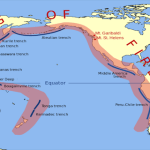There are two kinds of people in the world: those who are stricken with wanderlust and actually have the support and finances to travel the globe and those who are stricken with wanderlust and travel with their eyes closed.
The ones that fall into the first category are obviously the luckiest, although they have issues of their own, primarily the difficulty of choosing their next destination. In recent years, Uruguay has seen a huge increase in tourism, and for good reasons: it’s got something for everybody, from beautiful cities to picturesque vistas that are sure to appeal to those who value tranquility and serenity the most.
Is Uruguay safe to visit? Naturally, this is one of the very first questions that come to mind. In the remainder of this Uruguay safety guide, we’ll tackle all the risks one might expose himself/herself to when traveling to this country, as well as provide some Uruguay safety travel tips that will actually make a difference.
Highest Risks You Expose Yourself to When Visiting Uruguay

Overall Risks in Uruguay: Low
South America is famous for its extremely high crime rate that springs from drug dealing, kidnapping for ransom, violence, pickpocketing, and many other illicit affairs. However, Uruguay is surprisingly safe. It has a very low crime rate and is generally as tourist-friendly as a country in South America can get.
Even though it is fundamentally a third-world country, Uruguay is doing pretty well, all the more so since more and more tourists flood to it each year. This is not to say that Uruguay is the single safest country in the entire world. Tourists should be cautious and familiar with the risks that they expose themselves to.
Here are all the hazards you should be aware of if you plan to visit Uruguay. We’ll rate each of them with Low, Medium, and High, in order for you to get a better picture of the state of affairs. Let’s move on and answer the most frequent question: how safe is Uruguay to tourists?
Pickpocketing and Theft Risks in Uruguay: LOW

It seems that there’s a rule of thumb that applies to pretty much all the countries in the world: the larger the cities, the higher the risk of theft and pickpocketing. Fortunately, Uruguay is safe from this standpoint.
Pickpocketing and theft instances are scarce even in huge cities like Montevideo. Of course, we are not saying that it doesn’t happen. It happens everywhere. Don’t sweat it, though. With a few precautions, you will be safe and sound.
- How to avoid pickpocketing and theft in Uruguay?
You should pay attention to suspicious people when using public transportation and avoid, as much as possible, overly crowded streets. This is where pickpocketing usually thrives. Thieves love crowds because, should you have your things stolen, it would be tough to even realize who stole them, as they can basically vanish.
Another good idea is to keep photocopies of your documents and don’t walk around with flashy jewelry. Once again, it might take a quick stroll on a street to realize that your necklace or bracelet is gone and you didn’t feel a thing.
Keep your money in a safe place (the bottom of your bag, for instance) and refrain from walking on dim-lit streets at night, especially if you’re alone. Pickpocketing, as mentioned previously, is a thing that happens in crowded places. As long as you stay away from them, you’ll be 100% safe.
Scam Risk in Uruguay: LOW
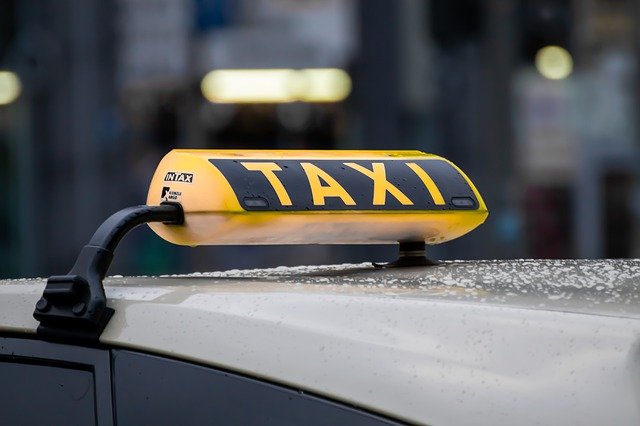
Scamming comes in many shapes and sizes. The commonest form of scamming you can fall prey to whilst in Uruguay is overpaying for taxi drives, primarily if those taxis aren’t registered.
Those that are registered are the official taxis in Uruguay (it applies anywhere in the world, too), so you should use those. The taxis that don’t have any signs that they belong to an official taxi company should be avoided if you want to get a fair price.
Scams are not limited only to taxis: all means of public transport can get you into some trouble that you could do without. Unsuspecting tourists can easily be tricked into paying more than they should. Pay attention to drivers and try to ask around what the normal prices are.
This way, if anyone tries to take you for a fool, you have an ace up your sleeve. So, how safe is Uruguay to tourists in respect of scamming? We daresay that the risks are pretty low, but this should not warrant being inattentive.
- How avoid getting scammed in Uruguay?
Each city has its official cab companies. A vast majority of the taxis you see in a taxi are unlicensed, even though they masquerade as licensed ones. If the driver doesn’t start the charging machine, you have the right to get that ride for free.
A simple search on the Internet can inform you as to which companies you should use and which you should stay away from.
Locals can be helpful, as well, as long as they’re not part of the problem, in the sense that I can so happen that people sometimes make deals with cab drivers and they get a share of the profits when they mislead tourists.
But then again, the risk of being scammed in Uruguay, even in huge cities like Montevideo, Las Piedras, and Colonia del Sacramento is low so you should worry about it.
Kidnapping Risk in Uruguay: LOW
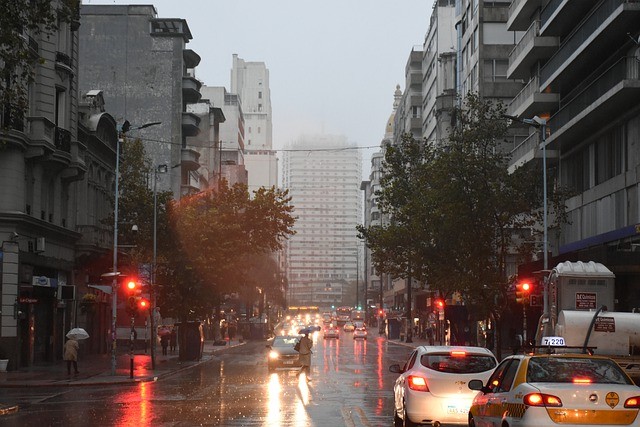
Albeit the 2017 Crime and Safety Report might not be as reassuring as one may have hoped, the risk of being kidnapped for ransom in Uruguay is almost nonexistent. Theft, as mentioned in the said report, is part of everyday life and tends to occur in open spaces. However, there are not many reports of tourists having been kidnapped.
In 2010, for example, 7 people were kidnapped for ransom, but this kind of behavior has seen a decrease since then. As a matter of fact, it didn’t even pick up, considering that young people spearheaded it and quit doing it when they weren’t very successful in their attempts to get the ransoms.
As with anything else, we don’t mean – in any way! – that you should go alone at night on the streets of the cities, even if they’re illuminated properly. The risk of being kidnapped is low, but it’s not inexistent.
- How to avoid getting kidnapped in Uruguay?
Kidnappings occur more frequently in open spaces, usually outside of the main cities, where there aren’t any witnesses. If you drive around in your own car, don’t stop for hitchhikers or any other people that have no business on streets in the middle of nowhere. They might pose as people in need of help, but you can easily assess that it’s not the case.
Another extremely valuable piece of advice is to refrain from making it painfully obvious that you’re a foreigner. Contain your excitement and you’ll be all safe and sound. If it’s possible to get a reliable guide that knows all the areas intimately, you should do so by all means.
The guide will know the red-light neighborhoods and the areas where violent crime is at a high rate. To leave you on an even more positive note: the kidnapping rate in Uruguay is 0.3 per 100.000 people, which is insanely low.
Terrorism Risk in Uruguay: LOW
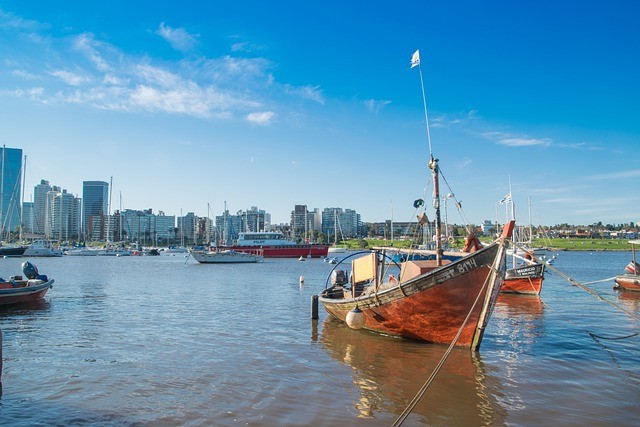
Being caught in a terrorist attack while visiting Uruguay should be the least of your concerns, and that’s a fact. There might just be a few anarchist groups (like anywhere else, for that matter), but foreigners are not targeted.
If you’re an American, you surely heard that the Uruguayans are very anti-American, but that’s neither here nor there. While there are certainly Uruguayans that harbor such sentiments, there were no reports whatsoever of tourists being attacked or singled out.
Of all the risks you expose yourself to in Uruguay, this is honestly the lowest. There are no reports of political violence there, so you shouldn’t even think about being caught up in some states that might end up badly.
- How to avoid terrorism in Uruguay?
However, knowing what to do in the event of a terrorist attack does no harm. On top of that, you may also learn how to avoid it. Even though the risk is low in Uruguay, you still have to pay attention to your surroundings for anything that may seem suspicious or out of the ordinary.
If you notice something like that, then you should flee the area and not wonder what could be happening. It may be a non-dangerous event, so to speak, but it is better to not take any chances.
When it comes to avoiding terrorism, you should pay increased attention to what's happening when you are in crowded places, malls, shopping centers, places of prayer, and so on. As you may know, these are likely to be targeted by terrorists and tourists should be careful when visiting such locations.
The golden rule here - in case something does happen - is to remain calm. While you remain so, you can flee the area, get to safety, and then alert the authorities so that they can deal with this issue.
Risks For Women Traveling Alone Uruguay: LOW

It should come as no surprise that even this risk is low, as long as you respect some of the commonest precautions possible. Uruguayans have been shown to be friendly with women and the major cities are surprisingly safe.
Predators tend to target lone women that are evidently out of place in the city – that’s why it’s crucial that you get a good map and you actually know where to go. This way, you won’t draw attention to yourself.
If you want to visit the country by car or to commute between cities for a couple of days, make sure you get good cabs, i.e. official ones. Do not – and we mean by no means – hitchhike and don’t get yourself in a position that warrants hitchhiking. That’s when you’ll be the most vulnerable.
- How to avoid crime as a solo woman traveler in Uruguay?
With the risk of repeating ourselves, we’ll let you know that you should stay away from remote areas where the populace is scarce; you should opt for a reputable hotel that’s got good credentials and that you should at least consider taking someone with you on that trip.
Don’t go alone at night and stay away from people that seem too friendly. Keep the number of the police handy in case anything happens and always let someone know your exact position or your itinerary if you plan on going places.
Rape Risk in Uruguay: LOW

This is the 1 million dollar question: Is Uruguay safe for solo women travelers? The renewed 2018 Crime and Safety Report, as well as that from last year, does not even mention rape as being a problem in Uruguay, which speaks volumes about the overall safety of women tourists while visiting the country.
Although the numbers are unclear at best, rape doesn’t seem to be as frequent as other forms of violence. In 2015, there were 8 cases of rape in Uruguay. Data is missing for the last 3 years, but since there were no wild reports, we daresay that there was no spiking in rape since then.
- How to avoid getting raped in Uruguay?
Women, it goes without saying, are a lot more vulnerable than men. Non-consensual sex is one of the main risks they have to deal with when traveling, regardless of country. There are bad people all over the world.
Traveling alone can seem really tempting, but you should think twice before you actually do it. You will always be safer if you travel with someone you can trust and who can protect you in case anything unexpected happens.
Walking alone during the night is absolutely out of the question. You might think you know the city you’re in, but you don’t, therefore you can easily get lost and end up in places that are known for being anything but safe.
As far as accommodation goes, BNBs can save you a ton of money and offer you a more intimate look at how the people in a certain country live. Make sure you choose somebody that has all the necessary credentials, doesn’t seem too clingy and eager to have you at their place, and doesn’t have bad marks.
Risk For People Traveling With Children in Uruguay: LOW
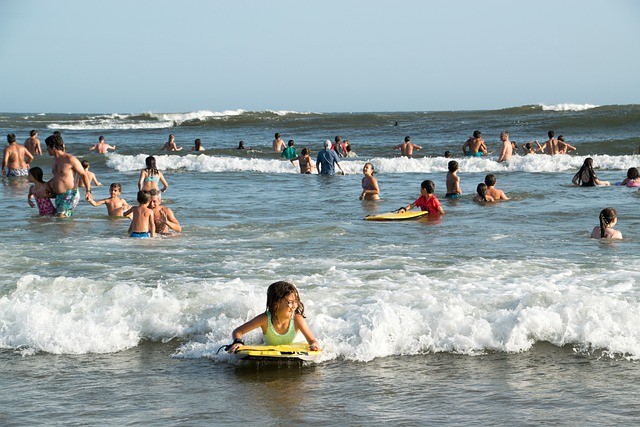
The only risks you’ll expose your family to in Uruguay are mainly medical ones, in the sense that medical care isn’t modern all over the country. In rural areas, for instance, there are no hospitals for miles.
Make sure you know what vaccines to get prior to leaving for Uruguay. In order for you to be 100% safe, we’ll end our Uruguay safety guide with a list of compulsory vaccines that both you and your children should get.
- How to avoid unwanted scenarios?
First off, always have a tankful of gas or at least enough gas that you won’t be at risk of becoming trapped god knows where. Secondly, do not drive at night. Sure, it’s less crowded and you can cover a lot more ground, but it’s not worth it, especially if the road conditions leave a great deal to be desired.
Again, we have to tackle accommodation: stay at a good hotel that’s situated in a good neighborhood. Keep medicine handy, as well as a first aid kit. You simply can’t know when the little ones will need some bandages.
Natural Disaster Risks in Uruguay: LOW
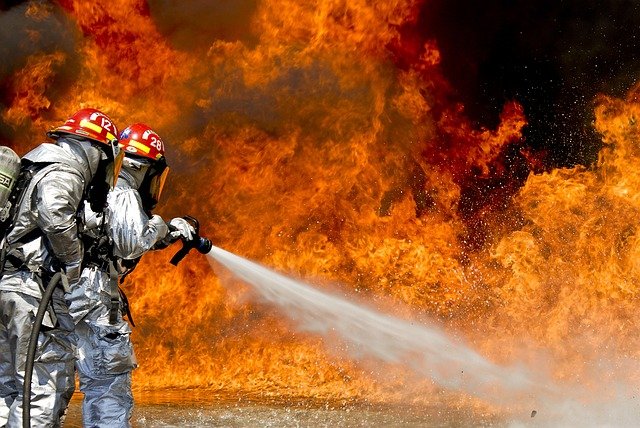
The weather in Uruguay is quite tame. There have been a couple of tornadoes, fires, and flash floods, but not as many as to cause real traveling concern. Luckily, there are very few and impotent earthquakes per year.
With all these, we all know that weather is wildly unpredictable and becomes all the more so. Keep an eye on the forecasts so you get a sense of what clothes and items you should take with you on your trip.
Transportation Risks in Uruguay: MEDIUM to HIGH
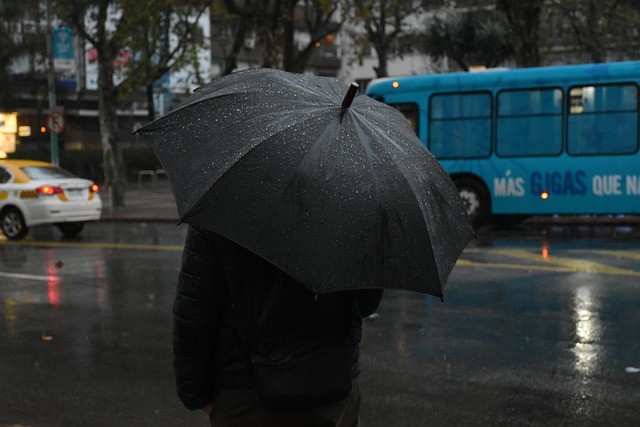
When it comes to transportation and road travel, Uruguay comes with poor driving standards and disorganized traffic. Here, drivers are known to change lanes and engage in unexpected turns without any type of indication.
On top of that, some people have reported that they even turn on the vehicle's hazard lights in the middle of the road just to pick or drop someone or run an errand - and not parking on the side of the road.
Motorbikes usually go the wrong way on one-way streets, which is why you should look both ways when crossing, no matter the type of street you are on. Moreover, traffic lights, stop signs, as well as speed limits, are ignored at times, making it difficult for both pedestrians and drivers to know what exactly is happening on the street.
The law requires that you use dipped headlights during the day - keep this in mind when driving around Uruguay.
Even though the main toll roads from Colonia del Sacramento to Punta del Este and Montevideo are well marked and in good condition, serious road traffic accidents are still common. The main causes for this are excess speed and the poor road layout.
The rest of the country comes with roads of various conditions - sudden deterioration, potholes, uneven road surfaces, and so on. Therefore, you have to be extra careful when driving in bad weather.
Night-Clubs, Pubs, and Bar Risks in Uruguay: LOW to MEDIUM

There are no reports of serious incidents involving tourists/ foreigners in pubs, bars, and nightclubs. On top of that, there are little to no reports of drink-spiking. Therefore, you should be relatively safe while visiting such locations.
However, you still have to take precautionary measures and keep yourself - as well as your valuables - safe. For example, don't bring large sums of money with you while in a nightclub - only the necessary. Naturally, jewelry and expensive gadgets should also be left in your accommodation, unless you want to be targeted by thieves and lose them.
Documents of identification, such as your ID and the passport should be left at your hotel and, instead, bring copies of them with you.
Moreover, when going to and coming from a nightclub, bar, or pub, you should rely on the services of a reputed and trusted taxi company. Avoid hailing taxis on the street or - worse - walking back to your accommodation on foot. Stay away from poorly lit and isolated areas, as well as from nightclubs located in the port area of downtown, as the crime rate is reportedly a bit higher there.
Health Risks in Uruguay

Before talking about the country's health risks, it is important to mention the fact that the regulation and legal status of medicine purchased or prescribed in other countries may be different in Uruguay. You should get informed as to how to travel witgh medicine on you, so to speak, before traveling to a foreign country.
On top of that, you must also make sure that you are traveling with proper travel health insurance and with enough money to cover the costs of any medicine or treatment that you may need for the duration of your stay - including any unforeseen circumstances, such as a delayed flight.
In terms of health risks, Dengue fever is present in the country. The disease is transmitted via mosquito bites, so you should take the proper measures to avoid being bitten - a bug repellent spray, for example.
Due to the country's climate and positioning, the sun may be extremely strong and have higher than usual UV levels. Equip yourself with proper sunscreen and adequate sunglasses.
When it comes to dental and medical treatment in Uruguay, keep in mind that is rather expensive. As mentioned above, make sure you have enough funds for treatment, as well as for medical evacuation.
List of Vaccines You Need in Uruguay
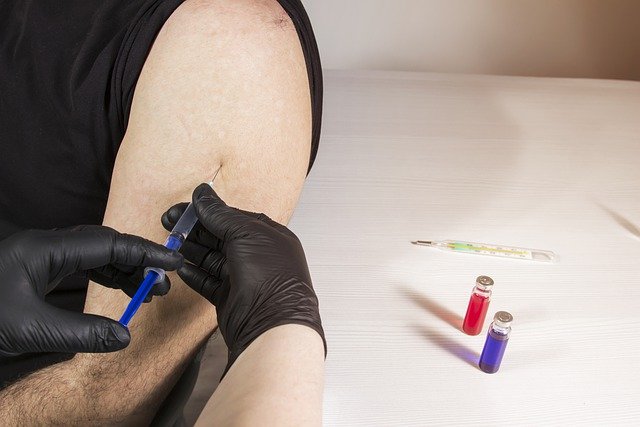
Uruguay is not a country that is known for epidemics, but this doesn’t mean that you should go there “commando”. There are a few vaccines that you and your children should get before leaving for Uruguay.
- Influenza: The fancy name for the common flu. If you haven’t been vaccinated for influenza already (really hard to believe, by the way), you should get it right away. Flu is not only a body-crusher, but it can have lethal complications.
- Rabies: Rabies is a fatal disease spread by infected animals by scratches or bites. “I’ll simply stay away from stray dogs and other animals” – you can do that, sure, but you don’t know when disaster strikes.
- Hepatitis A and B: Hepatitis A can be acquired from both food and water that have been contaminated with the virus. The B type is mainly spread through body fluids.
- Typhoid Fever: Typhoid fever is spread by salmonella and it can be fatal. If you know history even at the most superficial level, you know that epidemics of typhoid killed millions of people throughout history. Granted, there was no vaccine for it back then.
Most Dangerous Areas in Uruguay
- Montevideo - reportedly, most of the criminal incidents occur here, due to the rising opportunistic street crime.
- Other than that, there are no other areas that you should purposely avoid - just be careful and avoid remote and isolated areas when going out of town, and stay away from the poorly lit areas when traveling during the night.
Concluding Remarks: Is Uruguay Safe To Visit?
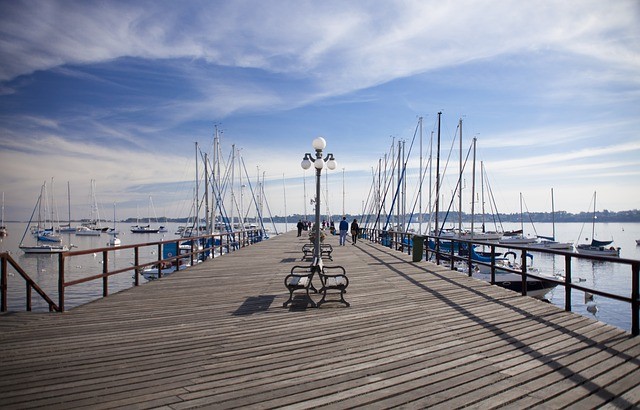
Taking into consideration all the things we’ve talked about and introduced you to in this Uruguay safety guide of ours, we think that Uruguay is actually one of the very safest countries you can travel to. Although it has its fair share of violence and crime, it is nowhere near as pronounced as it is in other South American countries.
Most people shy away from visiting third-world countries but Uruguay is honestly an exception. Whilst it’s not as modern throughout, it is not an ancient country, either. It combines beautiful landscapes with great architecture, it has a very refined and novel cuisine and overall is a good destination for all people, regardless of background.
This is where our Uruguay safety travel tips list comes to an end. We hope you’ve found this guide useful and that it showed you that Uruguay is not as bad as it’s been portrayed by the media or by the tourists that were simply unfortunate and had some mediocre experiences.
As long as you take some common-sense precaution measures, both you and your family will be safe and sound.



